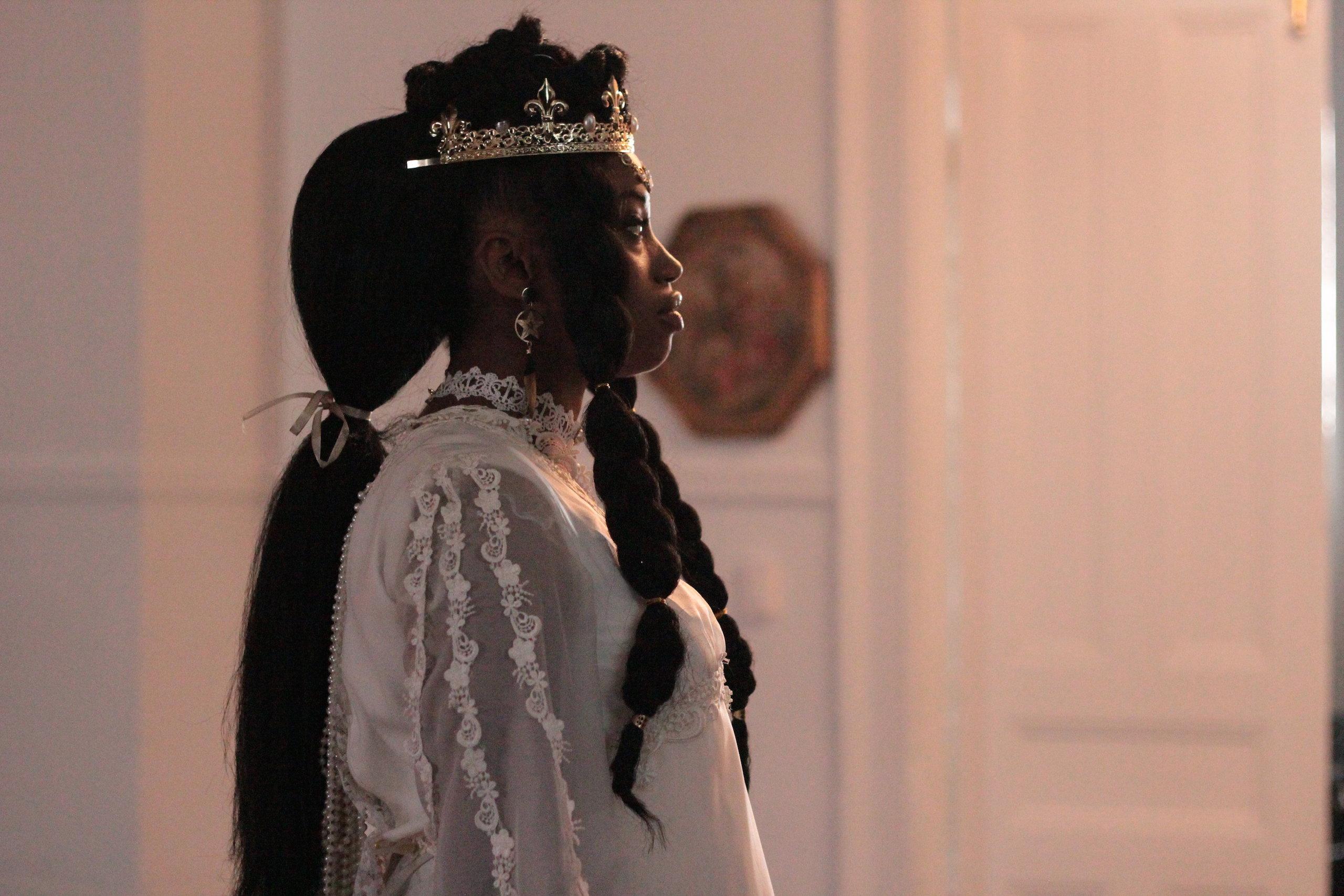By Premila D’Sa
Lindsey Addawoo and Kyisha Williams were tired.
As two young Black filmmakers, they felt like none of the films around them really represented the nuances of their identity. Addawoo had gone through four years of Ryerson’s radio and television arts film program and graduated in 2014 underwhelmed with the content she was given permission to create, and the content she saw around her.
“I felt like a lot of the projects were homogenous in a sense there were a lot of people who shot cool projects really well but they didn’t actually mean anything, in terms of social justice or any cultural accuracy or reference,” said Addawoo.
So when Williams approached Addawoo with the idea of a film that would be a Black feminist reimagining of a Victorian-era setting, she didn’t hesitate to get on board as a co-director.
The result was Queen of Hearts, a short film about a powerful queen who has to deal with betrayal and love. She can also literally rip hearts out. The usual perception of any film described as a “Victorian-period piece” is that it almost exclusively features white characters. But Addawoo and Williams were ready to change that.
Williams says the idea came about when she started thinking about the concept of Afrofuturism, recently popularized by the superhero flick Black Panther. Writer Mark Dery coined the term Afrofuturism in a 1994 essay. It’s the idea of blending elements of science fiction and futuristic themes with Black culture.
“I really enjoy the idea of blackness existing forever,” said Williams. “I wanted to take that one step further and talk about not are we only going to exist in the future, but we’ve also always existed in the past as well—our history didn’t start at slavery.”
She talked over the idea with fellow Toronto artist Dainty Smith, and the concept for Queen of Hearts came through. Williams then recruited Addawoo and a crew of other Black talent. The pair worked with Gabrielle Boateng, a costume designer and an interior design graduate from Ryerson. Boateng’s task was to essentially reinvent stiff Victorian attire, keeping it a recognizable artifact of the period, but with an added West African flair.
They rented The Great Hall in Toronto, a tall, large Victorian heritage venue now mostly used for weddings and concerts. They decked the hall out with West African regalia and symbols, turning the North American institution into their Black queen’s castle. The pair didn’t have much historical material to reference from, but they knew exactly what they wanted to create.
“When we do see a few characters of colour it’s often through a Eurocentric lens,” said Addawoo. “We wanted to have this film where Black people aren’t really influenced by white or European culture in the way they dress and the way they look. This is what West Africa probably would have looked like in a time that it was doing really well.”
The idea of Black luxury and regality was never one Addawoo got to express in her work at Ryerson. She says she doesn’t think the film would have come to fruition if she pitched it in the program.
“I [think] I would have gotten feedback similar to what me and Kyisha got when we first started which was, ‘This is ambitious, no one cares, there’s no audience and no one wants to hear it from you guys’,” she said. “I do wish it was a program that would be more inclusive and more understanding and culturally sensitive to people of colour.”
But the response the film got when Williams and Addawoo launched a campaign on Indiegogo affirmed their belief in the project. The film won a premiere at the Inside Out Film Festival, along with a $50, 000 award.
“I think it’s a testament to the fact that times are changing,” said Williams. “People want to see more nuanced work from Black creators and Black content in general, people want to see more interesting content than the usual slave narrative or the narrative of Black suffering, getting that acclamation from people you don’t know is incredible.”










Leave a Reply